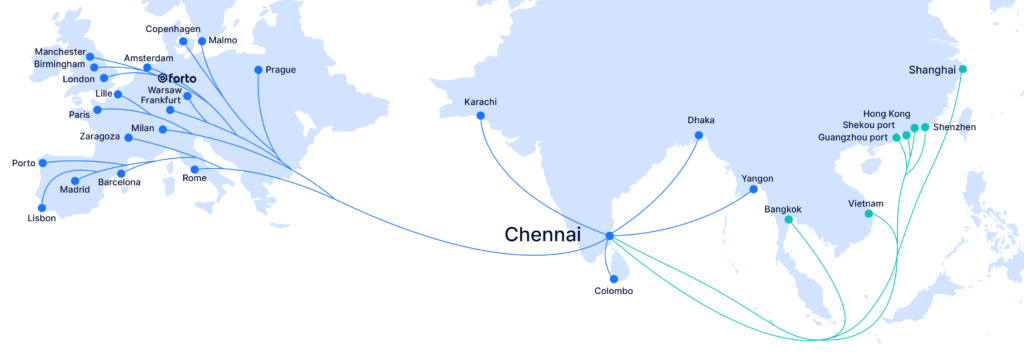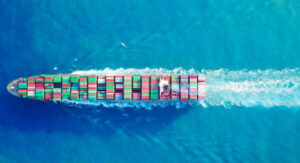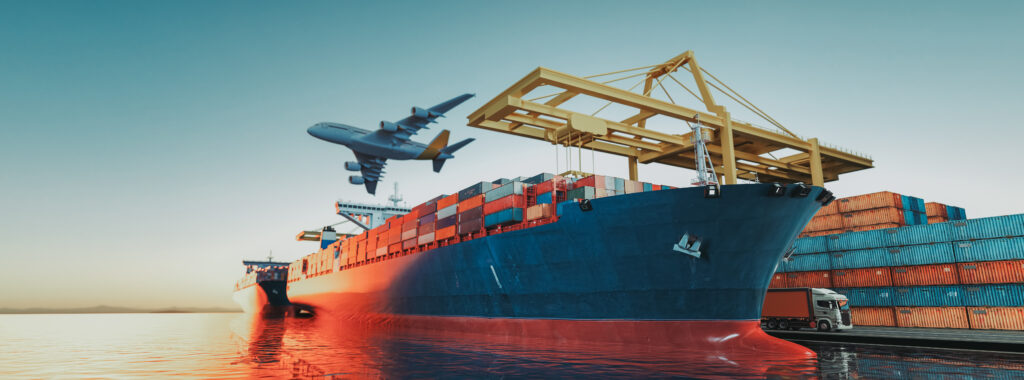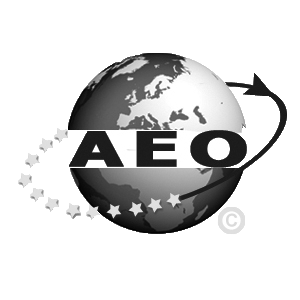The situation in the Red Sea, though unique, brings to mind the lessons learned from previous supply chain disruptions, like the Suez Canal blockage. Echoing Jochen Fresse’s insights on projected capacity and equipment challenges stemming from the Red Sea shipping crisis, Christopher Braun, Head of Air Freight at Forto, discusses how multimodal Sea/Air services can be a strategic response to the current disruptions.
The best of both worlds – speed and reliability
Sea/Air, also known as multimodal transport, is a strategic logistics solution combining the cost-effectiveness of sea freight with the speed of air freight. Traditionally, this mode of transport is particularly beneficial for time-sensitive shipments where sea freight is too slow and pure air freight is too expensive. By initially moving goods via ocean to a transit point and then switching to air transport, Sea/Air solutions offer a balanced approach in terms of cost, speed, and environmental impact. But more than that, in times of crisis, multimodal can be a timely answer to supply chain bottlenecks.
Pivoting in times of crisis
Supply chain challenges derived from the current Red Sea shipping crisis need a strategic response that multimodal Sea/Air services are uniquely positioned to provide. The blend of efficiency and speed, coupled with an alternate routing that bypasses the Red Sea region, can help businesses safeguard the delivery of goods without incurring the high costs of direct air freight or the uncertainties of ocean freight. Striking this balance is crucial for preserving supply chain fluidity and meeting market demands effectively.
The Long-Term Strategic Shift
In the long term, a more open approach to multimodal Sea/Air services proposes an adaptive shift in logistics strategies where flexibility and responsiveness are key. In an environment where quick adaptation to changing scenarios is essential, these services stand out for their ability to offer reliable and flexible transportation solutions. They underscore the importance of adaptable logistics practices in overcoming complex and recurrent global trade challenges.
Sea/Air Services from Asia to Europe
Forto’s Sea/Air services from China, Vietnam and the Indian subcontinent, which include locations like Pakistan, Bangladesh, and Sri Lanka, service nearly all major European airports with an approximate transit time of 16–22 days from port to door. Our service has weekly departures and by routing through Chennai, we offer a considerably faster alternative to traditional Sea/Air solutions routed through Dubai.
Forto Sea/Air Routes connecting Asia to Europe through Chennai

A Time Sensitive Opportunity
With the Red Sea shipping routes challenged by an ongoing conflict with no clear end in sight, these services provide an alternative to sea freight. However, disruptions affecting one mode of transport often ripple through others, suggesting that, as the Red Sea situation prolongs, capacity issues and price hikes like we are seeing on ocean freight services are expected to impact air freight as well. This underscores the urgency for shippers to consider multimodal options now, to maintain supply chain fluidity.
The Forto Advantage
Choosing Forto is partnering with an innovative, digitally advanced freight forwarder. Our multimodal services are tailored to the dynamic needs of today’s complex shipping environment, ensuring agility, reliability, and a strategic as well as sustainable approach to logistics.
For more information on how to optimize your logistics strategy with Forto’s multimodal solutions, contact us.
_
Follow Forto’s latest updates on the Red Sea Shipping Crisis on our dedicated Red Sea daily blog










